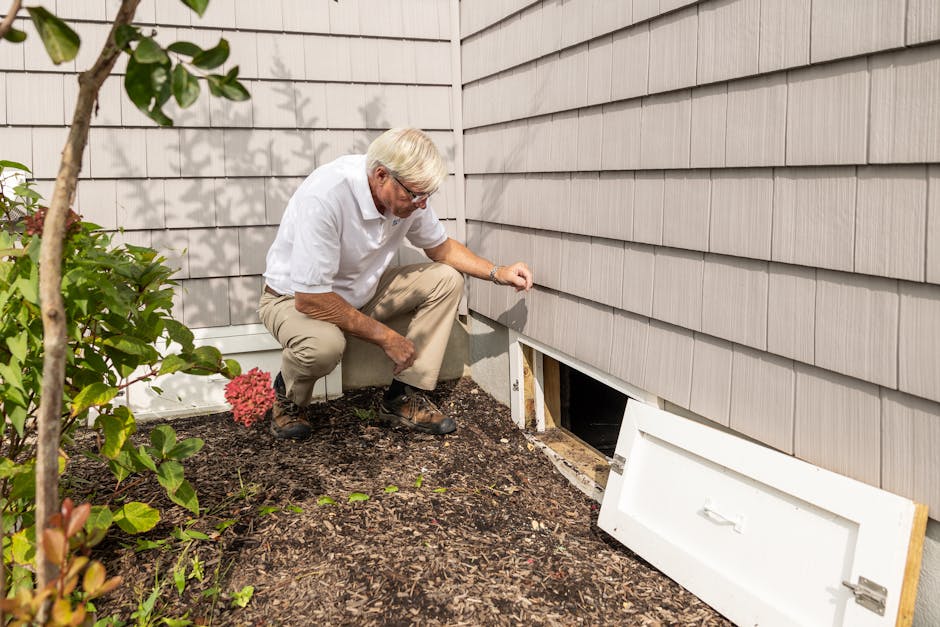Home Insurance Claim Advice: 10 Powerful Tips for Success 2025
Why Proper Home Insurance Claim Advice Can Save You Thousands
When disaster strikes your home, knowing the righthome insurance claim advicecan mean the difference between getting fully compensated and losing thousands of dollars. Whether it’s storm damage, flooding, or theft, filing an insurance claim is often your financial lifeline back to normal.
Essential Home Insurance Claim Advice:
- Document everything first– Photos, videos, and detailed lists before any cleanup
- File immediately– Most insurers require claims within one year, but sooner is better
- Know your deductible– Don’t file if repair costs are close to your deductible amount
- Keep all receipts– Temporary repairs, hotel stays, and meals can be reimbursed
- Get multiple contractor estimates– Don’t accept the first settlement offer
- Understand your coverage– Replacement cost vs actual cash value makes a huge difference
Insurance companies have trained adjusters whose job is to minimize payouts, while you’re left navigating complex policy language.Wind and hail are the most common causes of homeowners insurance claims, with one in 35 insured homes filing such a claim each year.Most homeowners don’t know their rights or how to maximize their settlement.

Easyhome insurance claim adviceword list:
–attorney to help with insurance claims
–does an insurance broker help with claims
–do insurance agents help with claims
Should You File? Weighing Costs vs Benefits
Not every damaged shingle or broken window should become an insurance claim. Filing the wrong claim can actually cost you more money in the long run.
Your insurance company keeps a permanent record in theCLUE database(Comprehensive Loss Underwriting Exchange) for seven years. Other insurers can see this when you shop for coverage.
The math gets tricky fast.If you file a claim for $1,200 in damage with a $1,000 deductible, you’ll receive $200 from your insurer, but your premiums might increase by $300-500 annually for three to five years. Plus, you’ll lose your claim-free discount worth another $200-500 per year.
Premium increases aren’t just a maybe—they’re likely.Most states allow insurers to raise rates after claims. Multiple claims can lead to policy non-renewal, forcing you into more expensive coverage.
| Scenario | Repair Cost | Your Deductible | Insurance Payout | Potential Premium Increase (3 years) | Lost Claim-Free Discount | Total Cost to You |
|---|---|---|---|---|---|---|
| File Claim | $1,500 | $1,000 | $500 | $1,200 | $600 | $2,300 |
| Pay Out of Pocket | $1,500 | N/A | $0 | $0 | $0 | $1,500 |
When a Claim Makes Sense
File immediatelywhen repair costs significantly exceed your deductible. Safety issues demand claims – broken windows, damaged support beams, or electrical damage require immediate attention. Criminal activity always warrants filing with both police reports and insurance claims.
When to Pay Out of Pocket
Small losses rarely make sense as claims.If damage costs less than twice your deductible, consider handling it yourself. Recent claim history matters – multiple claims within a few years can lead to non-renewal.
Step-by-Step Home Insurance Claim Advice
When disaster strikes and filing makes financial sense, the steps you take in those first crucial hours can make or break your settlement.
Your safety comes first, always.Call 911 for immediate dangers before thinking about insurance. Once safe, resist the urge to start cleaning up immediately.
Document everything before touching anything.Walk through your home taking photos and videos of every bit of damage from multiple angles. Insurance adjusters become suspicious when evidence has been moved or thrown away.
Call your insurance company’s 24/7 claims hotlineas soon as you finish documenting. Have your policy number handy along with basic details about what happened and when.
Your insurer will assign an adjuster to evaluate your claim. This person works for the insurance company, not you. Be courteous and cooperative, but don’t feel pressured to agree with their initial assessment.
You have a duty to prevent further damage– board up broken windows, tarp damaged roofs, or stop water leaks. Keep every receipt because these emergency repairs are typically reimbursable.
Start a claim diary from day one.Write down every phone call, meeting, and conversation with dates, times, names, and what was discussed.
Home Insurance Claim Advice: Secure & Document
Documentation becomes the difference between a fair settlement and a financial nightmare.Your insurance company won’t take your word for it.
Start with photos and videobefore you touch anything. Takewide shots showing overall damageto each room, then close-ups of specific items. Don’t forgetserial numbers and model numberson electronics and appliances.
Creating your detailed inventoryroom by room. For each damaged item, note the brand, age, original cost, and current replacement cost.
Download theNAIC Home Inventory Appright now, even without current damage. This free app helps catalog everything you own and stores it safely in the cloud.App Store Do this before a disaster strikes.
If your records got destroyed, rebuild your inventory by scrolling through phone photos, asking friends for pictures they took in your home, checking credit card statements, and researching replacement costs online.
Don’t throw away damaged itemsuntil after the adjuster sees them. Insurance companies need to verify damage with their own eyes. Tossing evidence before inspection can lead to claim denials.
Home Insurance Claim Advice: File Fast & Follow Up
Time is your friend when filing insurance claims. Filing quickly puts you ahead of the pack, especially after major storms when adjusters are swamped.
Filing your claim quicklygets you scheduled weeks before those who wait. You can call24/7 hotlines, use online portals, or file through mobile apps.
Have your policy number readyalong with contact information and a clear description of what happened. Most policies give you up to one year to file, but some have shorter deadlines. Why risk it?
How to file a homeowners claim
Meet Your Adjuster
Your adjuster works for the insurance company, not you.Be your own best advocateduring the walk-through. Point out every bit of damage, bring your documentation, ask questions, andtake notes on everything they say.
Be polite but firm.Ask them to explain calculations and question any depreciation they’re applying.
Temporary Repairs & Loss Mitigation
You have a “duty to mitigate” – prevent further damage if you reasonably can.This is good newsbecause temporary repairs are usually covered above your deductible.
Take photos before making repairs.Keep every receipt– even that $20 tarp. Don’t wait for permission, but document everything.

Payouts & Paperwork Demystified
Your deductible gets subtracted from every settlement check.If damage costs $10,000 with a $1,000 deductible, you receive $9,000. Some policies haveseparate deductibles for different damage types.
Settlement checks are typically made out to both you and your mortgage servicer.Your mortgage company releases funds in stages as repair work progresses.
Replacement Cost vs Actual Cash Value
Replacement Cost (RCV) pays for brand new materialsto repair or replace damage.Actual Cash Value (ACV) pays replacement cost minus depreciation.A $15,000 roof that’s 50% depreciated only pays $7,500 under ACV.
You can challenge excessive depreciationby showing proof of good maintenance or recent improvements.Many policies pay ACV initially, then remaining depreciation once repairs are complete.
Understanding Your Deductible
Flat dollar deductiblesare fixed amounts like $1,000.Percentage deductiblesare calculated as a percentage of your home’s value – 2% of a $300,000 home means a $6,000 deductible.
Additional Living Expenses & Loss of Use
When your home becomes unlivable,most policies cover extra living costs.This includes hotel costs, restaurant meals above normal food budget, and storage costs.Keep every receipt– your insurer wants detailed documentation.
Coverage has limitsbased on percentage of dwelling coverage or time period. Know your limits so you can plan accordingly.
Expert Help & Dispute Options
When facing complex claims or hitting roadblocks, professional help can make the difference between a fair settlement and leaving money on the table.
Choosing & Managing Contractors
Verify their licensewith your state licensing board. Check Better Business Bureau ratings and ask for recent references.Confirm they carry proper insuranceincluding liability and workers’ compensation.
You’re not required to use your insurer’s “preferred” contractors.Consider joint meetingsbetween your contractor and the insurance adjuster.
When to Hire a Public Adjuster
Public adjusters work exclusively for you, while insurance adjusters work for the insurer.Complex or large claimsoften benefit most from professional representation.
Public adjuster fees typically range from 5-20%of the final settlement. The investment often pays for itself through higher settlements and reduced stress.
Reasons to Hire a Public Adjuster for Property Damage
Appealing Denied or Underpaid Claims
Start with your insurer’s internal appeals process.You can file supplemental claims for newly finded damage.Most policies include an appraisal clausefor binding arbitration when you can’t agree on loss value.
Filing complaints with your state insurance departmentcan pressure insurers to reconsider their positions.
How to Reverse a Denied Property Claim by Working with a Public Adjuster in Miami
What to Do When Your Home Insurance Claim is Denied
Avoiding Common Mistakes & Proactive Prep
Most homeowners make costly mistakes that could be easily avoided. Learning from these pitfalls can save you thousands.

The biggest mistakes:delaying claim filing,poor documentation,accepting first settlement offers, not understandingcoverage limits and exclusions,inadequate temporary repairs, andnot tracking expenses properly.
Build a Bulletproof Home Inventory
Create a comprehensive home inventory before disaster strikes.Cloud storage is your safety net– store everything digitally where it can’t be destroyed.
Goroom by roomdocumenting everything of value. Take photos from multiple angles, then close-ups showing serial numbers.Update annuallyafter major purchases or improvements.
Maintain Your Coverage
Review your policy annuallyto ensure coverage limits reflect current reality.Notify your insurer immediatelyafter major improvements. Consideradditional specialized coveragefor floods, earthquakes, or high-value items.
Frequently Asked Questions About Home Insurance Claim Advice
Will filing a claim raise my premiums?
Filing a claim often does result in higher premiums, but it depends on several factors.State regulations play a huge role– some states prohibit rate increases for weather-related claims.Your claim history matters more than a single incident.The size and cause of your claimalso influence premium impact.
How long do I have to file a claim?
Most policies give you one year, but don’t wait.State regulations and individual policies can create shorter deadlines.Some require notification within 60 days.Filing as soon as possible protects you– fresh damage is easier to document and investigate.
Is it worth claiming for minor damage?
Generally, avoid filing when repair costs are less than twice your deductible.Recent claim history makes small claims even less attractive.Don’t forget aboutclaim-free discountsworth $200-$500 annually – often more valuable than small claim payouts.
Conclusion
Filing a home insurance claim doesn’t have to feel like battling a giant corporation. With the righthome insurance claim adviceand approach, you can get the settlement you deserve.
Document everything before you touch anything.File promptly but think strategically about whether a claim makes sense. Don’t let insurance companies rush you into accepting their first offer.
What separates homeowners who get fully compensated:they understand their rights and advocate for themselves.They keep detailed records, ask tough questions, and get professional help when stakes are high.
At Global Public Adjusters, Inc., we’ve spent over 50 years helping Florida homeowners steer these waters. We’ve seen every trick insurance companies use to minimize payouts, and we know how to counter them. Whether dealing with hurricane damage in Miami, water damage in Tampa, or fire damage in Jacksonville, we understand Florida property owners’ unique challenges.
Insurance companies have teams of professionals protecting their interests.Shouldn’t you have someone working just as hard to protect yours? Our experienced adjusters fight for every dollar you’re owed under your policy.
The next time disaster strikes, you’ll be armed withhome insurance claim advicethat can save you thousands. Your home represents your family’s security and biggest financial investment.You’re not just filing a claim, you’re fighting for your family’s financial recovery.Make sure you’re equipped to win that fight.




